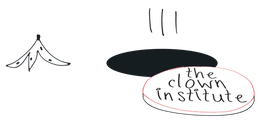|
In an era where individualism often overshadows communal bonds, the Clown Chorus Ensemble Lab held earlier this month in Sydney aimed to offer a refreshing perspective on the delicate balance between selfhood and collective identity. This lab didn’t just explore theatrical performance; it challenged our understanding of how unique individuals emerge from and contribute to the collective. The questions posed in this lab weren’t merely academic; they were deeply relevant to contemporary society in 2024. Redefining Heroism and Community Activist Emma Goldman's poignant challenge to "be oneself and yet in oneness with others" resonates profoundly in today's fragmented world. The Clown Chorus Ensemble Lab was an experiment in rediscovering this balance. By creating a collective flow (aka the chorus) only to intentionally disrupt it, we were able uncover the unique "clown" within each participant. This joyfool disruption isn't just theatrical; it’s a metaphor for societal change. Who is our Modern Hero? In our quest to identify modern heroes, the lab proposed that today's stereotypical heroes are not the traditional strongmen or flawless figures but those who, like clowns, embrace vulnerability and imperfection. They are individuals who can stand apart from the collective, question it, and yet remain an integral part of it. In this light, the clown becomes a symbol of resilience and truth in a world often obsessed with superficial perfection and lies. The lab's approach to building and breaking collective flow highlighted an essential truth: genuine progress often requires disruption. This perspective challenges the notion that harmony and conformity are always desirable. Instead, it suggests that the most profound truths and innovations emerge from the cracks in the collective facade. The clown, by daring to be different, exposes these cracks and invites us to confront uncomfortable realities.
Ethical and Universal Connections As I observed the lab participants in choral formation it reminded me of the power of communal performance. It’s not just about moving in sync; it’s about connecting deeply with others, society, and the universe. This connection is ethical in nature, urging us to be conscious of our movements and their impact on the collective. It’s a return to the roots of theatre, where the chorus was not just a group but a representation of societal conscience. Clown as a Mirror Naturally, the clown’s role in this lab was not merely to entertain but to act as a mirror to society. By embracing perceived inadequacies (cracks in our personas), the clown challenges the observer or audience to reconsider their definitions of normalcy, success and how one should behave. The clown’s perpetual rise after every fall is a poignant metaphor for resilience and the human spirit’s triumph over adversity. The clown teaches us that true bravery lies in the ability to rise repeatedly like the tallest sunflower. It’s not about wallowing in despair but about using it as a catalyst for creating meaningful connections and understanding. The clown, by existing within this tragic space, bridges the gap between individual pain and collective empathy. In the end, the two-day Clown Chorus Ensemble Lab was more than an artistic experiment; it was a call to action. In urging us to embrace our vulnerabilities, joyfully disrupt the status quo, and find the sweet spot in our collective humanity. By reimagining the roles of the clown and the chorus, maybe we can redefine heroism, adopt deeper connections, and create a more resilient and compassionate society. Who knows, perhaps in the laughter and tears shared through this journey we call life; we may find the true essence of what it means to be a funny old human.
0 Comments
I'm excited to tell you about my recent adventure on the Sunshine Coast, where I teamed up with the fantastic Coastal Caring Clowns to explore the world of therapeutic clowning. Coastal Caring Clowns traces its roots back to the passion and inspiration of a Sunshine Coast resident, Barbara Brewster, who toured with Patch Adams in Russia and the USA in the 1990s. When I was invited to facilitate a Healing with Humour Lab, I wasn't sure what to expect. What I encountered, however, left me in awe. Over two days filled with laughter and insight, I witnessed the profound impact of the group's skills and dedication to the art of therapeutic clowning. Let me start by sharing the stories of Eileen and Brian, aka Bluebird and Bubbles, the dynamic duo of giggles. “Your workshop helped me make more eye contact with a group. Shyness has always been a real thing with me. Clowning has helped me immensely to be more confident & speak up more. Your workshop has also increased my belief in myself.” - Eileen aka ‘Bluebird’ "Alicia, you dragged something out of me which was trying very hard to stay hidden behind a quiet and very conservative and comfortable existence. I had been thinking that my clowning had become a bit stodgy. You stirred up the sediment and turned it into something which is the start of the new me” - Brian aka ‘Bubbles’ Their words hit me right in the funny bone, showing the power of clowning to bring out our inner goofball and jump out of our comfort zones. What touched me the most was the profound sense of community and camaraderie that permeates their organisation. Despite most of the volunteer clowns being retired and not receiving any monetary compensation, each volunteer shares a unified mission: to illuminate lives through laughter and empathy. It's this collective dedication to service and craft that sets Coastal Caring Clowns apart. At its core, therapeutic clowning embodies the essence of artistry in service, offering a poignant response to contemporary realities of isolation, inequality, and powerlessness. It acknowledges the interconnectedness of mind, body, and spirit, fostering healing not only for individuals but for entire communities. In a world often plagued by division and despair, these volunteer clowns stand as beacons of light, wielding laughter as their healing tool. As a therapeutic clown, I've had the privilege of witnessing firsthand the transformative power of play and laughter in healthcare, arts and corporate settings. In my journey, I've gleaned invaluable lessons that have not only enriched my practice but also shaped my perspective on life. Eileen and Brian's stories inspired me to distill my insights into five guiding principles for fellow travellers on this path: 1/ Play and Laughter: Medicine for the Soul One of the fundamental truths I've discovered is the profound impact of play and laughter on physical and psychological well-being. Beyond mere entertainment, play and laughter serve as potent remedies, reducing stress, boosting morale, and fostering a sense of joy amidst challenging circumstances. Whether engaging in whimsical games or sharing a moment of levity, the therapeutic clown's role extends far beyond entertainment—it becomes a beacon of hope and healing. 2/ Connection Trumps Performance Contrary to popular belief, therapeutic clowning isn't about being the funniest or mastering a repertoire of gags. Instead, it's about forging genuine connections, establishing rapport, and creating an environment conducive to laughter and play. Authentic connections transcend barriers, fostering a sense of belonging and solidarity among patients, families, and staff. 3/ Self-Care Through Connection and Play In the demanding realm of life, work and everything in between, self-care often takes a backseat. However, I've come to realise that true self-care stems from fostering connections and indulging in play, rather than erecting emotional barriers. By immersing ourselves in the world of others, we replenish our spirits, finding solace and rejuvenation amidst the chaos. 4/ Embracing the Present Moment Therapeutic clowning has taught me the importance of embracing the present moment—the "now." In the whimsical realm of clowning, there's no room for dwelling on the past or worrying about the future. Instead, every moment is an opportunity for spontaneous connection, uninhibited expression, and boundless creativity. 5/ Empathy and Perspective-Taking Perhaps the most profound lesson of all is the ability to see the world through the eyes of others. By embodying compassion and empathy, therapeutic clowns create a safe space where patients feel understood, valued, and empowered. Whether engaging with non-verbal children, improvising with props, or playing the role of the "low-status" clown, our ultimate goal is to uplift and empower those we encounter. Alicia in 'Enclownter', a public art therapeutic clowning performance. Therapeutic clowning isn't just a vocation—it's a journey of self-discovery, resilience, and profound human connection. By embracing play, fostering connections, and embodying empathy, we not only bring laughter to healthcare settings but also sow the seeds of healing and hope in other spaces and communities.
May we all find fulfilment in spreading laughter and compassion wherever life leads us. Exploring Therapeutic Clowning: Learn more about the principles and practices behind therapeutic clowning and its impact on well-being. Motherhood – a journey filled with laughter, tears, and the constant balancing act of nurturing our children while tending to our own needs. In August 2023, I found myself drawn to share the beauty of clowning with a group of remarkable mothers. Together, we embarked on a workshop that became a sanctuary of laughter, camaraderie, and self-discovery. Amidst the chaos of parenting, we rediscovered the importance of play – not only for our children but for ourselves. Motherhood often leads us to shelve our inner child, consumed by the demands of daily life. We forget the simple joy of play, prioritising practicalities over the whimsical. Yet, within the realm of clowning, I am able to find a bridge between my roles as a caregiver and a playful spirit. It is allowing me to navigate the complexities of parenthood with a sense of lightness and creativity. I wish for the ‘Clown for Mamas’ workshop to become a space for collective healing and reflection. Where we laugh to forget the challenges, but we also can cry to remember the beauty of our journey. Through clowning, we are encouraged to embrace the duality of motherhood – the loss of freedom juxtaposed with the creation of precious memories. Now as I embark on crafting a clown show inspired by my own motherhood journey, I am confronted by the uncertainties and joys inherent in both parenting and performance. Like raising a child, creating a theatrical piece is a labour of love, fraught with obstacles and moments of pure delight. It echoes the universal question that every parent grapples with: "Am I doing this right?" “Will they still love me?”.
Clowning is teaching me to embrace the messiness of life, to find beauty in imperfection, and to celebrate the joyous absurdity of motherhood. It's not about following a script but rather improvising with the unexpected twists and turns that come our way. Just as each clown performance is unique, so too is every moment of motherhood. The art of clowning is offering me profound insights into the nature of joy and resilience. In the world of clowning, perfection is not only unattainable but also undesirable. Clowns revel in their flaws, finding humour and humanity in their quirks and imperfections. Through their antics, they invite us to laugh at ourselves, to release the burden of striving for an unattainable ideal, and to embrace the messy beauty of being human. In the end, the journey of motherhood is not about achieving perfection but rather about embracing the journey with all its ups and downs. Through clowning, I am discovering that the key to finding joy amidst the chaos lies in embracing our inner child, nurturing our sense of play, and cherishing the precious moments of connection with our children and fellow mothers. In embracing my inner clown, I'm learning to let go of my need for control and perfection. Instead, I'm embracing the spontaneity of the moment, surrendering to the unpredictable rhythms of life with a sense of curiosity and wonder, and yes sometimes dread. In a recent heart-to-heart with a fellow mama, I confessed a truth that resonates deeply: part of motherhood is grappling with moments where enjoyment feels elusive. It's a sentiment shared among many mothers, a recognition that the journey is not always smooth sailing. Like a clown navigating a slapstick routine, I stumble, I fall, and I pick myself back up again, laughing all the while. And in doing so, I'm discovering that the true joy of motherhood lies in the messy, imperfect, gloriously chaotic dance of life. As I reflect on the transformative power of clowning in my motherhood journey, I am filled with gratitude for the laughter, the tears, and the profound sense of community that it has brought into my life. And though the road ahead may be uncertain, I am comforted by the knowledge that as long as I have my clown nose and an open heart, I can navigate the joys and challenges of motherhood with grace and resilience. Enter the fantastical domain of the clown's universe, and you'll find yourself captivated not only by the dazzling performances under the spotlight but also by the enigmatic world that lies just beyond the curtain—the backstage. A liminal space where reality and fantasy intersect, the backstage serves as the gateway between the stage and the outer world. In this hidden dimension, the clown, that whimsical and unpredictable figure, finds a home—a space where the unseen, the negative space of the clown, comes to life. The Backstage as a Planet: Imagine the backstage as a celestial body, a planet orbiting the stage in a parallel universe. This is where the clown resides, navigating through a cosmos of red noses, exaggerated props, and vibrant costumes. The backstage is not just a physical space but a dimension filled with the echoes of laughter, the scent of greasepaint, and the anticipation of the performance yet to unfold. As we explore the backstage, we delve into the very heart of the clown's universe—a place where transformation occurs. Here, the clown sheds the mask of normalcy and steps into a world of absurdity and paradox. The backstage becomes a playground where the laws of reality are bent, and the clown's essence is distilled. The Clown's Habitat: Where does the clown live in this peculiar backstage planet? The answer lies in the interstitial spaces between costume racks and makeup tables, where chaos and creativity collide. The dressing room becomes a sanctuary, a cocoon in which the clown undergoes a metamorphosis, shedding the mundane and emerging as a fantastical being. Within the backstage, the clown's habitat extends beyond the dressing room. It encompasses the narrow corridors adorned with faded posters from performances long past, the cluttered storage areas housing oversized props, and the secretive corners where laughter and camaraderie intertwine. This habitat is a reflection of the clown's spirit—colourful, unpredictable, and delightfully chaotic. The Unseen Silhouette:
In the outer world, the audience witnesses the clown's larger-than-life silhouette under the spotlight. However, it's in the backstage's negative space that we discover the essence of the clown—a silhouette shaped by vulnerability, resilience, and a deep connection to the art of laughter. The unseen silhouette is not just a physical form but a manifestation of the clown's inner world, a world that thrives on the tension between joy and melancholy. It's in these backstage moments that the clown grapples with the duality of their existence, finding beauty in the absurdity of life. The backstage, a planet unto itself, is where the clown's journey truly begins. It is a space where the ordinary transforms into the extraordinary, and reality gives way to fantasy. As we unravel the mysteries of the backstage, we gain insight into the soul of the clown—their laughter, their tears, and the vibrant, unseen silhouette that dances between the worlds of the stage and the outer reality. This year, around this time commemorates a decade since I initially stepped onto the Lecoq floorboards. In the enchanting realm of theatre, where words meet movement, the Jacques Lecoq pedagogy has been my guiding star—a transformative journey that has unlocked the door to crafting poetic, moving theatre shows. Especially when it comes to approaching the smallest mask in the world; the red nose. The Power of the Body as a Storyteller: Lecoq’s teachings have gifted me a profound appreciation for the body’s eloquence. Every gesture, every step, every nuance becomes a note in a symphony of comedic storytelling. Characters Beyond Words: With Lecoq, characters cease to be mere words on a page. They become living, breathing entities birthed from the depth of movement. Through masks, mime, and physical exploration, I’ve discovered the art of shaping and embodying characters in a way that transcends the boundaries of language. The Dance of Emotion: Emotions are not just felt; they are danced. Lecoq’s pedagogy has shown me that emotions can be conveyed through the subtlest of movements—the quiver of a hand, the arch of a back, or the rhythm of a heartbeat. Creating Worlds Without Limits: In the Lecoq universe, the stage knows no bounds. It’s a canvas where imagination runs wild, and the laws of physics are mere suggestions. Through physical improvisation, I’ve witnessed the birth of surreal landscapes, the magic of impossible encounters, and the beauty of limitless creativity. A Journey of Self-Discovery:
Beyond the artistry, Lecoq’s pedagogy has been a journey of self-discovery. It’s an exploration of my own physicality as i get older, an excavation of hidden facets of myself, and a continual process of growth and revelation. Crafting Poetic Moving Theatre: With every step, every mask donned, every character embodied and inspired, I’ve learned to craft theatre that is not just seen but felt. It’s theatre that lingers in the hearts of the audience, leaving them with a sense of wonder and a yearning for more. In embracing the Lecoq pedagogy, I’ve found a path to create theatre that moves and is not bound by the limitations of words. It’s a journey that continues to inspire, challenge, and illuminate my artistic soul, and I’m endlessly grateful for the poetic world it has allowed me to weave on the stage. Merci @ecolejacques Singing is a wild ride through fear and beauty, a powerful way to share emotions and touch souls. I remember a recent moment during the creative development of my latest show when a colleague asked me to sing as part of a clown warm-up. I was so nervous, stepping into unfamiliar territory was daunting. But I decided to go for it. As I started to sing, fear turned into freedom. The Scary Journey: Every time you get on stage or start to sing, fear kicks in. You worry about being judged, not being good enough, and exposing your true self. Singing is all about being vulnerable, bravely letting your soul's melodies out. Just like I felt that day, your heart races, palms sweat, and you wonder if it's worth it to step into this scary spotlight. The Beauty Within Imperfections: But here's the thing—there's beauty in that fear. It's in those vulnerable moments that the magic of singing happens. The cracks, flaws, and imperfections aren’t mistakes; they make the performance truly special. That day, my own raw emotions became the paint for my masterpiece, creating something real and authentic. Connecting Through Vulnerability: Those imperfections turn into bridges between you and the audience. They don't just see a polished performer; they see a real person. This shared vulnerability connects you on a deeper level, making the audience feel the music, not just hear it. During that clown warm-up, even in a playful context, I felt that connection deepen. Discovering the Authentic Self:
Going through this vulnerable journey changes you. You discover your true self, realising that embracing your flaws and facing your fears helps you connect deeply with yourself. In this raw state, you become a genuine version of yourself, unafraid to show your imperfections. That singing moment showed me a version of myself that was real and unfiltered. The Feeling of Freedom: Singing as a clown warm-up was incredibly freeing and amazing. It was a moment of breaking free from self-imposed limits and celebrating the beauty that comes from embracing vulnerability. Even in this playful context, singing showed me the power of stepping outside my comfort zone. Singing through vulnerability is a brave journey through fear and beauty. It's a reminder that the most real moments in life come from embracing imperfections and facing fears head-on. Through the cracks and flaws, the true magic of singing shines, connecting hearts and leaving a lasting impact on both the singer and the audience. So, let fear guide you into the beauty of vulnerability, because in that space, true transformation, connection, and freedom await. Yay!! Clowning stands as an enduring art form, eliciting joy and laughter across generations. At the heart of the classic clown aesthetic lies the iconic red nose—an emblem of whimsy and merriment.
Utilising the red nose serves to accentuate your sense of bewilderment, directing focus towards your expressions and physicality. It's akin to having a conspicuous pimple on your nose, revealing facets of your character like a magnifying glass. The nose signals a commanding presence in the room, demanding attention and drawing spectators closer to the performer. They act as a visual cue, signaling that something captivating is about to unfold. For those embarking on their clowning journey, I've compiled a list of links where you can explore and purchase the ideal red nose. It's important to note that I am not affiliated with any of these companies: RED NOSE FACTORY RENEGADE JUGGLING CLOWN ANTICS PRO KNOWS Did you know I was not born an actor or clown artist? Yep, I was your 9 to 5 gal, and then I quit. Here are My 5 Whys: 1. Because as children, we were all experts at play and I LOVE TO PLAY. Becoming a clown is my way of reconnecting with that inner child who found wonder and delight in every moment. The truth is I wanted to have more fun and take life less seriously and to be free to be me! La vida es un Carnaval ! 2, I left the corporate world as it felt like I was living in a never-ending episode of “The Office.” I craved something more meaningful, something where I could genuinely touch people’s lives with laughter. Office life for sometimes felt like a never-ending cycle of seriousness. I yearned to reintroduce the element of play into my daily existence, to rediscover the joy it brings. 3. When it’s tough out there in clowning world I often ask myself why choose this path ? Picture this: a room filled with kids’ laughter, parents forgetting their worries, and strangers becoming friends over a shared laugh. That’s the magic of clowning, and I wanted to be the magician. Clowning isn’t just about entertainment; it’s about reminding adults and children alike of the importance of play. Play fosters creativity, empathy, and connection – it’s a universal language that transcends boundaries. 4. I left my comfy salary because comfort zones are cozy but uninspiring. At the time it was time to trade my suit for a red nose and the monotony of office meetings for the unpredictability of clown shows. One of my highest values is adventure and life in the clown fast lane is one giant unpredictable joyride!
5. Life is too precious to waste on anything less than what sets your heart on fire. I want to be the reason someone smiles on a tough day, and I’m ready to give it my all. And play is a fundamental part of being human. It relieves stress, sparks innovation, and brings people closer together. By spreading laughter, I aim to highlight the significance of play in our lives. I just want to keep on playing and making shows that inspire laughter and good times! Nothing wrong with that I say!
Guest host Maleeka Gazula spoke to Alicia about her experience going to the famous theatre-making school, creating The Clown Institute, and how clowning has brought the gifts of self-discovery, authenticity and joy to her life.
Visit here or listen on Spotify Both the natural and creative worlds are at a tipping point – impacted by urban growth, climate crisis and now Covid. We face enormous challenges for our ecosystems to survive and thrive. The Inner West Council has funded 20 arts projects to explore these issues in creative spaces such as shipping containers and under bridges on the Greenway. Come along and see for yourself. EDGE GREENWAY 2021 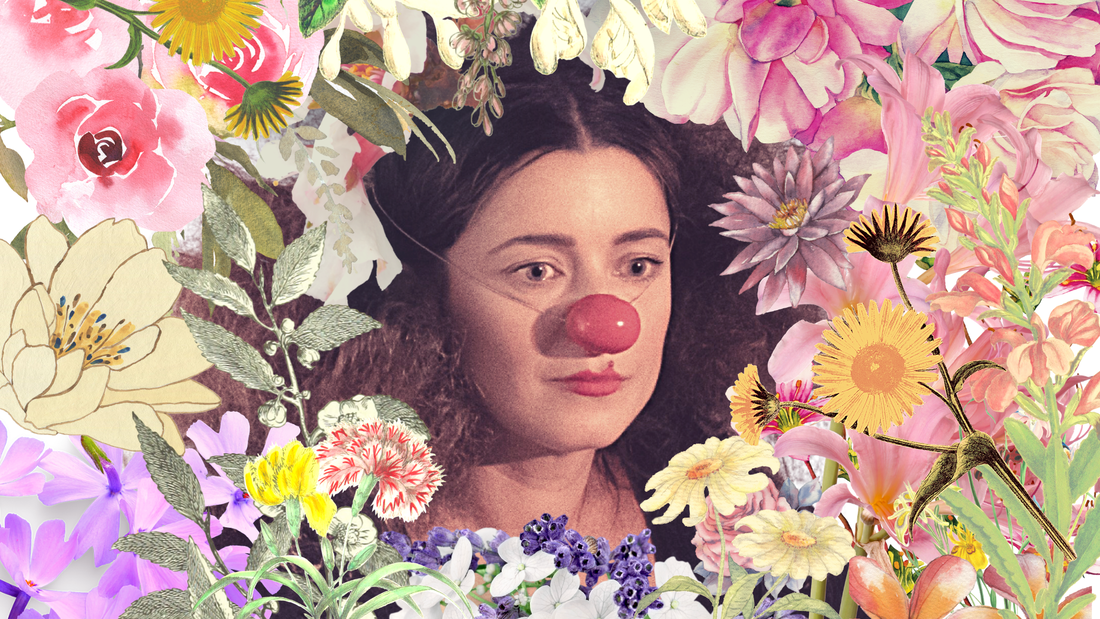 Pop-up Performance What’s the clown’s point of view of the natural and creative world in crisis? You’re invited to an intimate encounter with a bereft clown. An 'Enclownter with joy' is an interactive 5-minute experience between you and a clown set on the Greenway. It is played out for spectators one at a time, from the moment the clown opens the velvet rope and invites you to sit next to her to a curtain call. You play the role of ‘joy’ as you take part in a silent dialogue and observe the surrounding natural and urban landscape. Dates + Times Sat 24th April, Sun 25th April Sat 1st May, Mon 3rd May, Thurs 6th May & Sun 9th May 2PM-4PM Ticket Price Free. Just turn up, booking not necessary. Location In between Blackmore Oval & Peace Park, Lilyfield. Public Workshop
Playing in Nature Workshop: When clowning and nature meet Facilitated by Alicia Gonzalez. ‘Beauty arises in the stillness of your presence...Presence is needed to become aware of nature'. -Eckhart Tolle / Power of Now The essence of a clown is presence, imagination, and creativity. In this 3-hour outdoor workshop, you will learn clowning technique while being surrounded by the natural environment of the Greenway corridor. The clown asks us to open our eyes and to observe the world as they live and love to imitate life, so you’ll observe and interact with the movements of nature and how they correspond to movements of the human condition and emotion and how this can serve as inspiration for comedy and You will learn how to create the best conditions for play, to play deeply in your bodies. The workshop will include warm-ups and group games and will be led in a playful and light spirit, so you can expect some giggles along the way. We’re not talking about the circus-variety clown. This work is closer to the style of Charlie Chaplin and Buster Keaton. Capacity: 20 people maximum. Open to all levels. Ages 12+. Date + Times Saturday 8th May 10AM-1PM Meet at Peace Park, Lilyfield. Ticket price Free (bookings essential) |
AuthorAlicia Gonzalez is a clown and coach living the beautifool life. Archives
July 2024
Categories
All
|

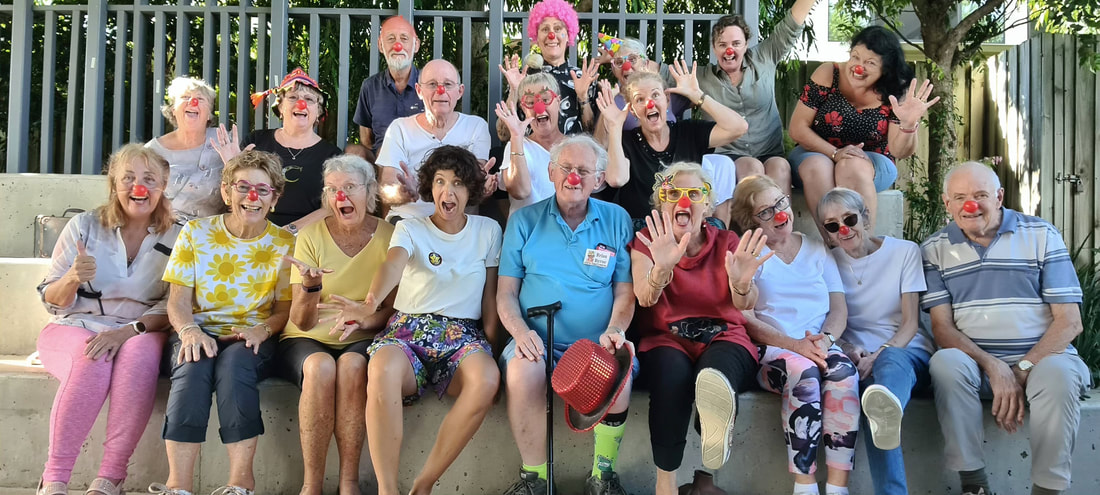
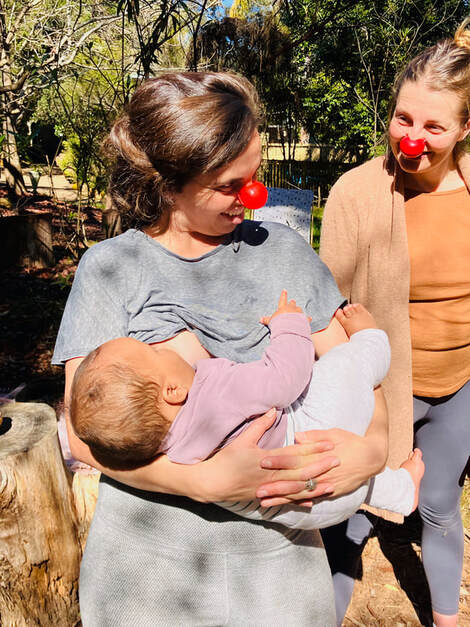
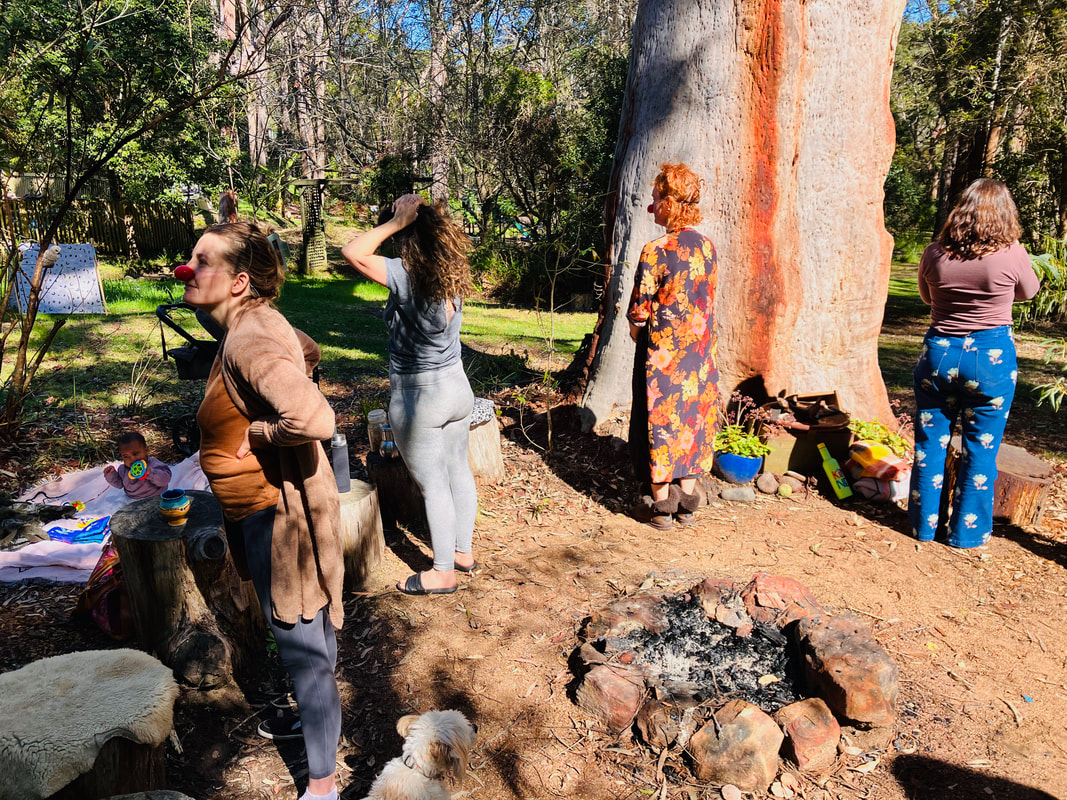
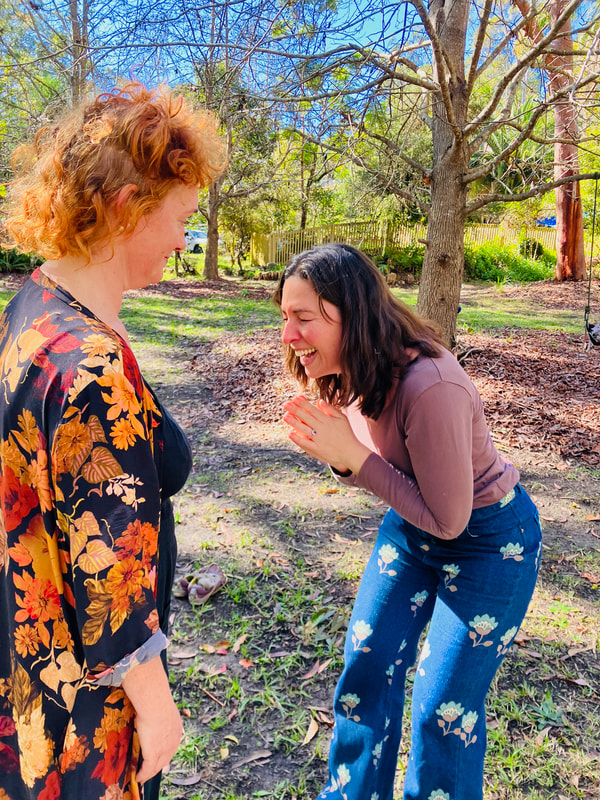

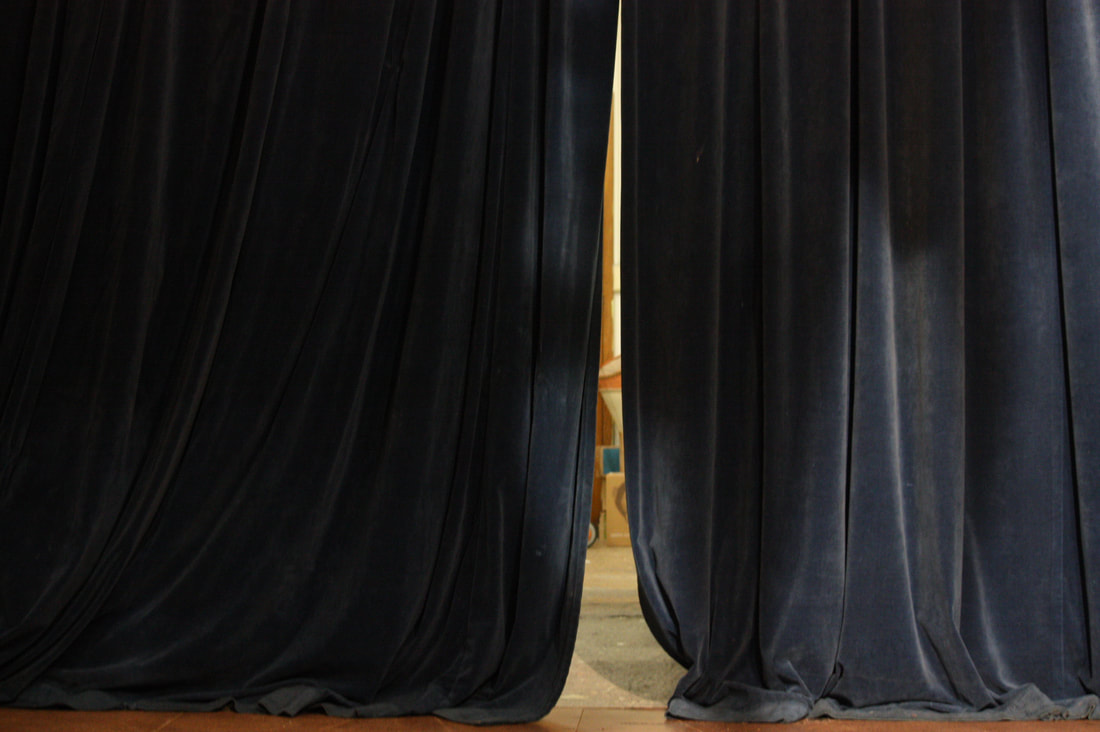
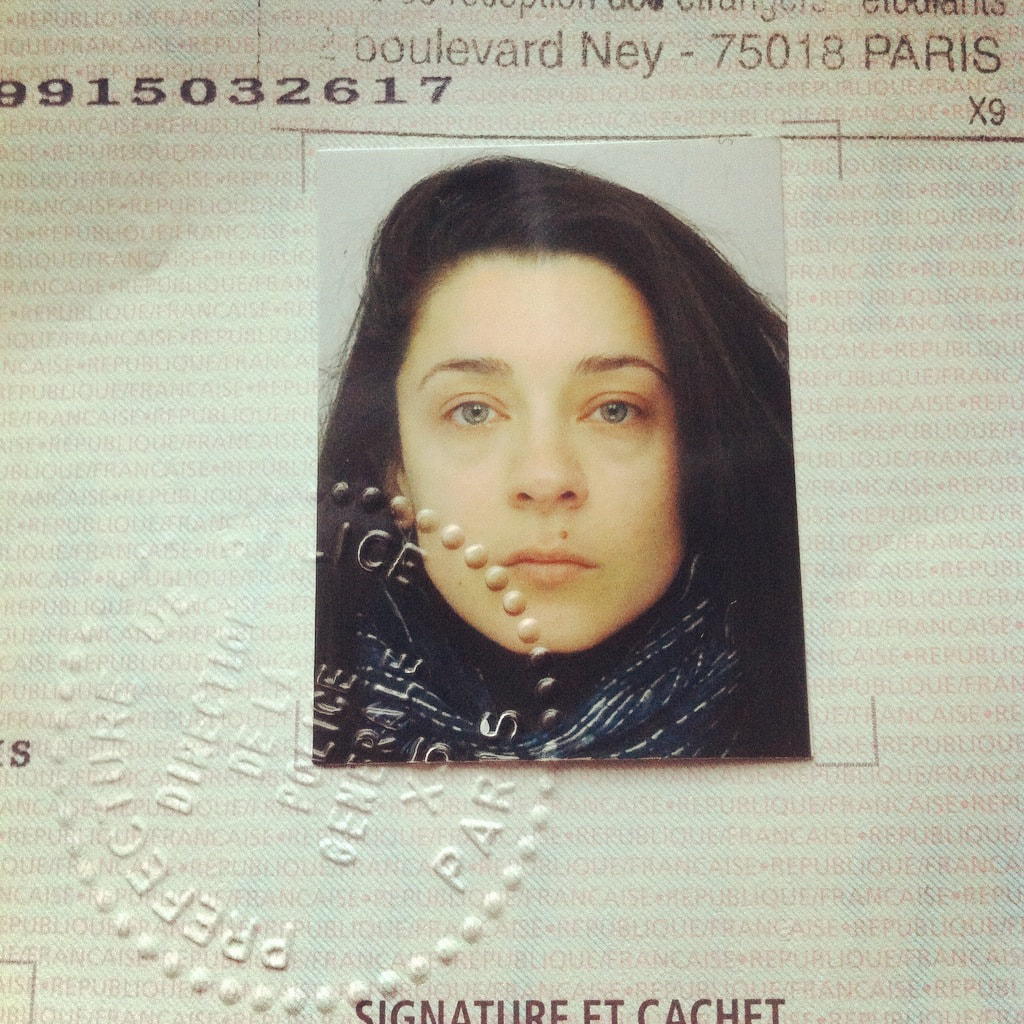
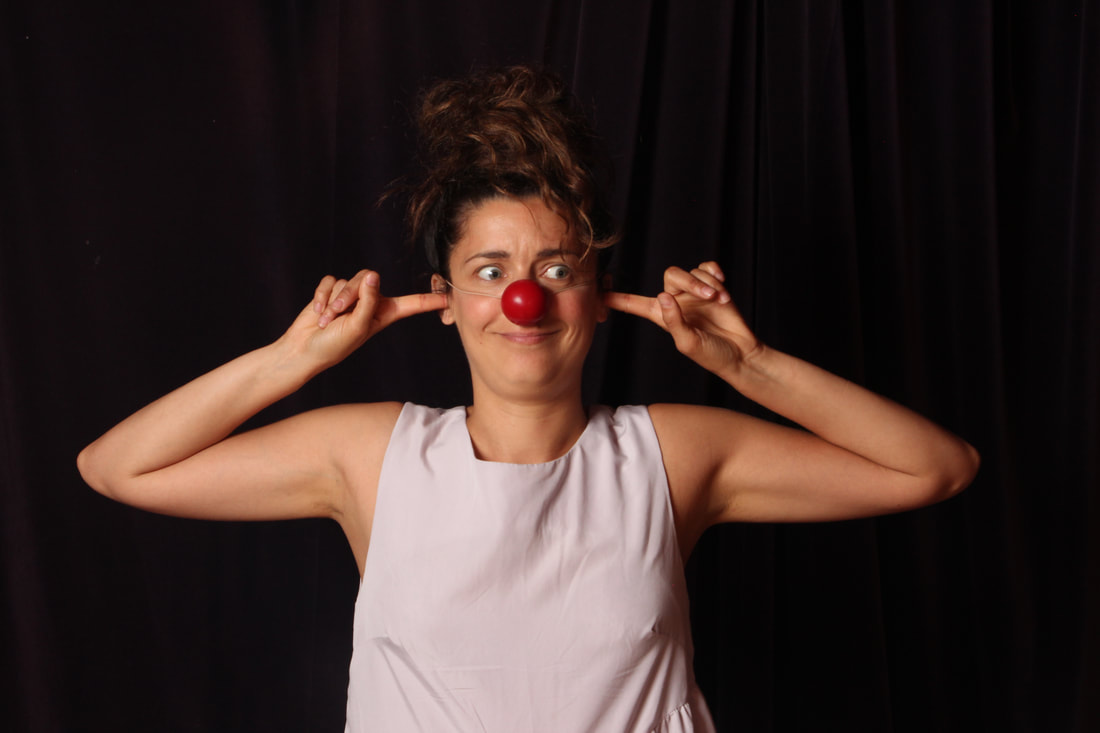
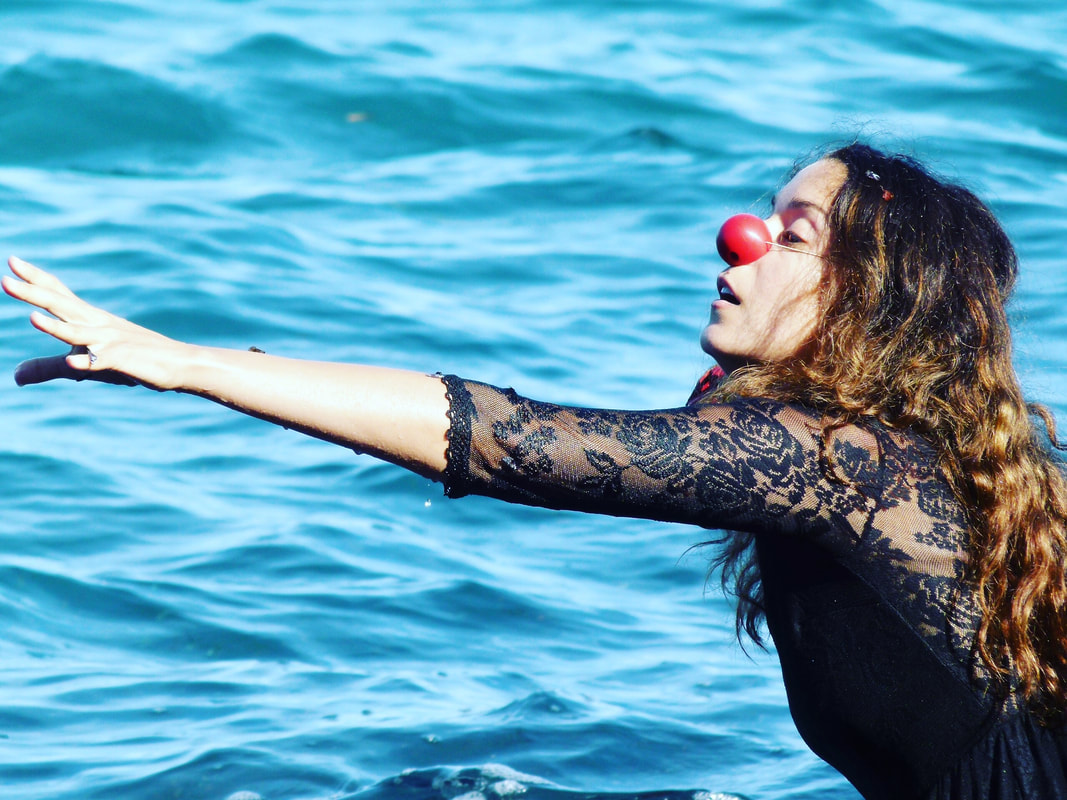
 RSS Feed
RSS Feed
